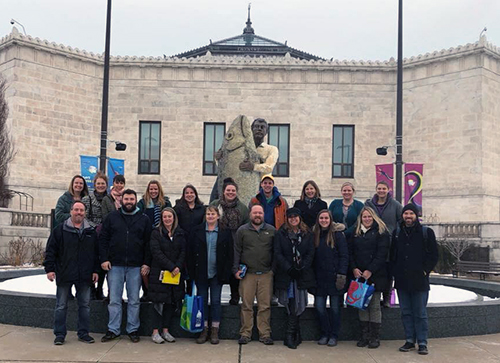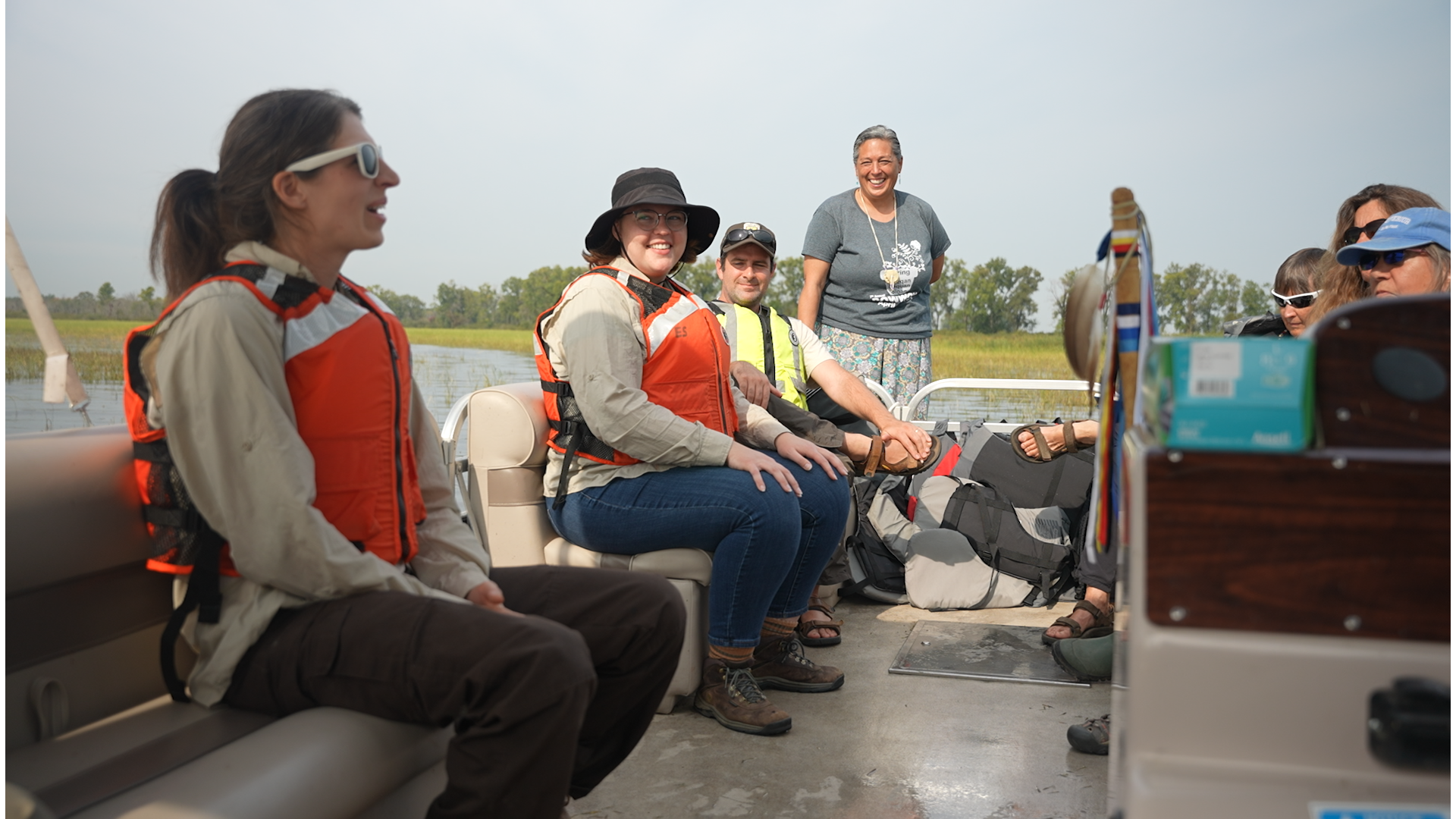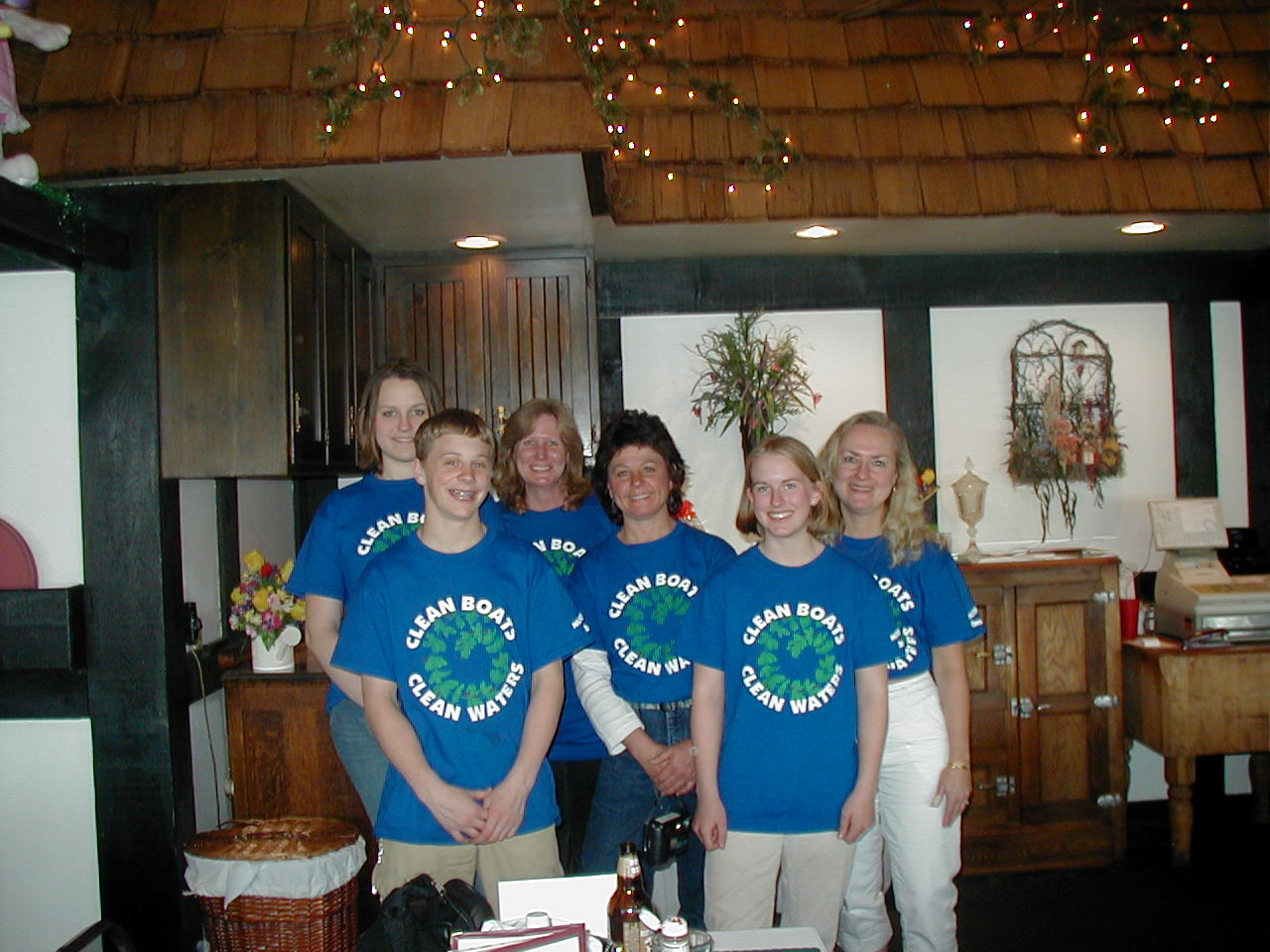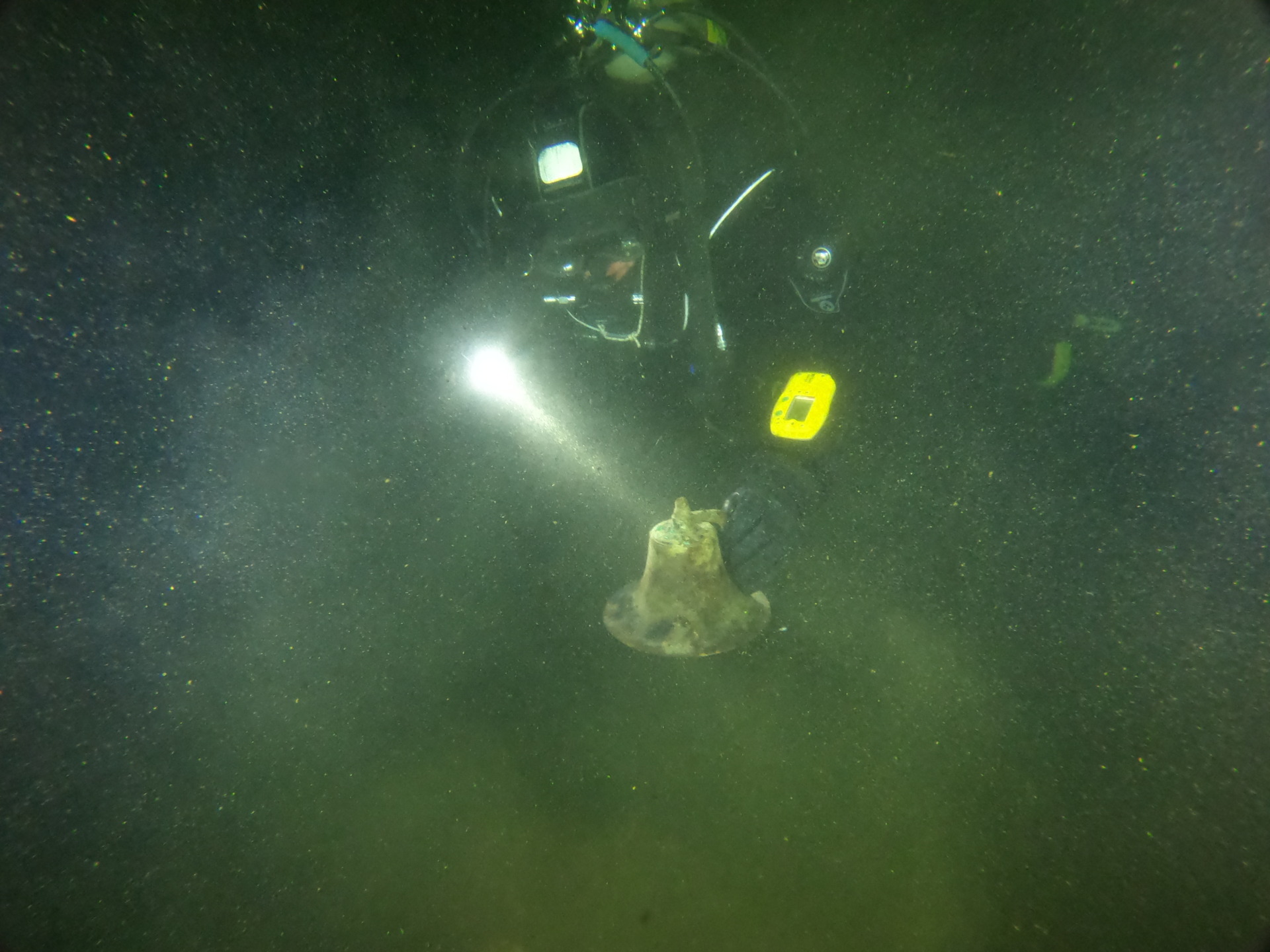When teachers have access to professional development that inspires them, they find new ways to make science come alive for their students. Through networking with peers, field experiences and more, teachers gain insights and new techniques to bring home to their classrooms.

B-WET teachers and others affiliated with the program during an outing to Chicago’s Shedd Aquarium. (Submitted photo)
In northeastern Wisconsin, the Wisconsin Maritime Museum continues to offer an innovative teacher professional development program supported by the National Oceanic and Atmospheric Administration’s (NOAA) B-WET grant program, which stands for Bay Watershed Education and Training.
B-WET encourages experiential learning for K-12 students, with the goal of increasing understanding and stewardship of local watersheds and ecosystems. NOAA is also the administrative home of the national Sea Grant program, which includes Wisconsin Sea Grant and 32 other state-level programs.
Through the efforts of Fisheries Specialist Titus Seilheimer, Wisconsin Sea Grant continues to share its expertise with the B-WET program run by the Wisconsin Maritime Museum. Seilheimer first became involved about three years ago.
He provides content expertise and helps run field experiences for the teachers. “Since I work in aquatic ecology, and I work with fish, my role has been to provide that ecological and scientific context to the overall program,” said Seilheimer.
This has also helped Seilheimer build relationships with area teachers, who often invite him back to their classrooms. In April, he was involved in a beach cleanup along Lake Michigan in Two Rivers. The teacher in charge was involved in the B-WET program, and her sixth-graders had identified marine debris and beach litter as an issue they wanted to work on.
A beach cleanup can be a great opportunity to teach watershed concepts, said Seilheimer, such as how stormwater outflow can transfer debris like cigarette butts from the streets to the beach.
A new focus on accessibility and inclusion
This year, the Maritime Museum’s B-WET teacher program is continuing, adding a new focus on students with disabilities (physical, emotional or cognitive). In addition to experiences during which the teachers work mostly with each other and content experts, teachers and their students will go on inclusive field trips.
Twenty teachers from the previous B-WET grant in 2016 will transition into the role of mentor teachers, working with newly recruited teachers.
Given the focus on accessibility and inclusion in this year’s program, the new teachers will either be in special education or teaching in classrooms that have a diverse array of student abilities.
Said Abigail Diaz, director of education and public programs at the Wisconsin Maritime Museum and the B-WET principal investigator, the inclusion of students with disabilities fills a little-addressed gap in the world of environmental education.
“This is the first B-WET grant that focuses on accessibility, and I’m really glad that NOAA is prioritizing accessibility. Sometimes people with disabilities get overlooked in environmental issues because the environment seems like it’s inaccessible to them. I’m thrilled we’ve been given this funding so we can help empower young people, because they have a voice—no matter their ability level—to be stewards of our environment,” Diaz said.
Diaz hopes that this accessibility effort can be replicated in other places. “It’s not difficult to create accessible and inclusive programs, but it can be daunting to start. I understand that. Yet I hope we can spread the good word—it just pays you back tenfold,” said Diaz.
Teachers who are interested in getting involved should contact Diaz at the museum. New teachers will be recruited until July.
Diaz is looking forward to another productive year for the B-WET program, as well as joining forces with Seilheimer again. “Other than being just the coolest guy, he knows everything,” she laughed. “He’s so great with both kids and adults, and his passion for Great Lakes ecology and fish is just infectious. This project wouldn’t be possible without having somebody like Titus involved.”
Other partners include Woodland Dunes Nature Center, Michigan Sea Grant, the Lakeshore Natural Resource Partnership, and the Museum of Science and Industry Chicago.





